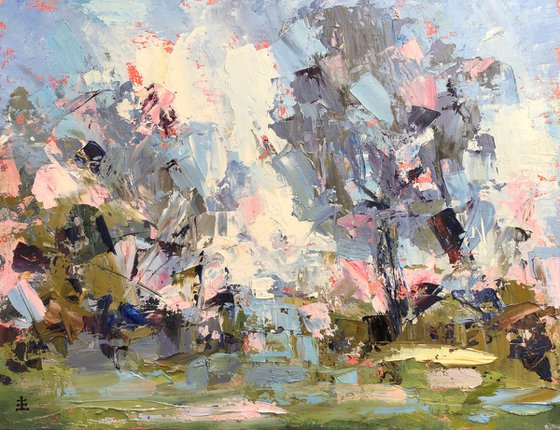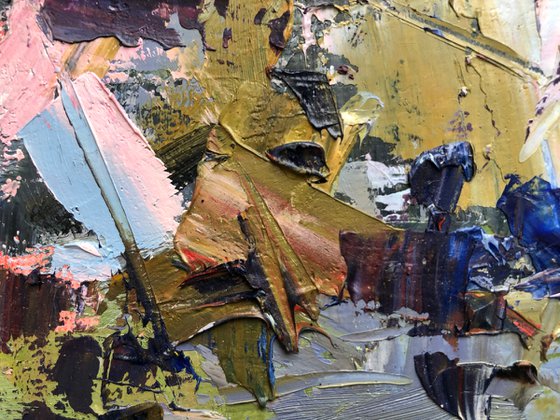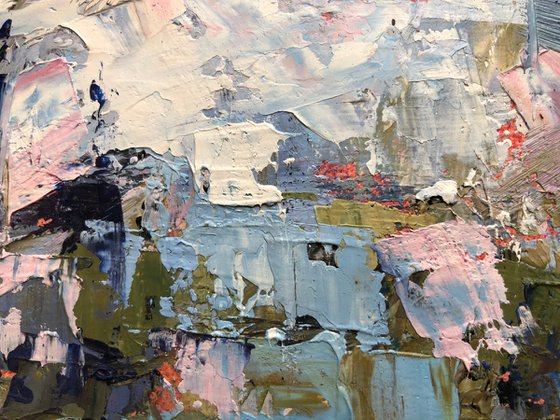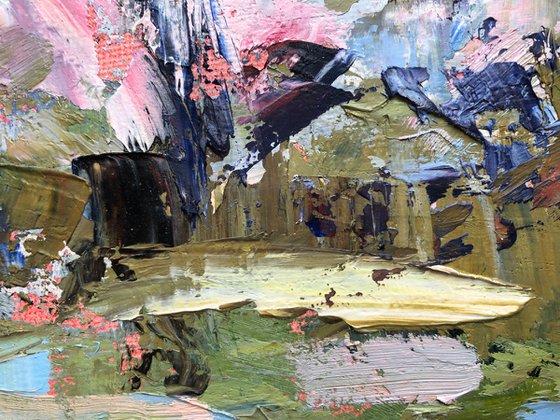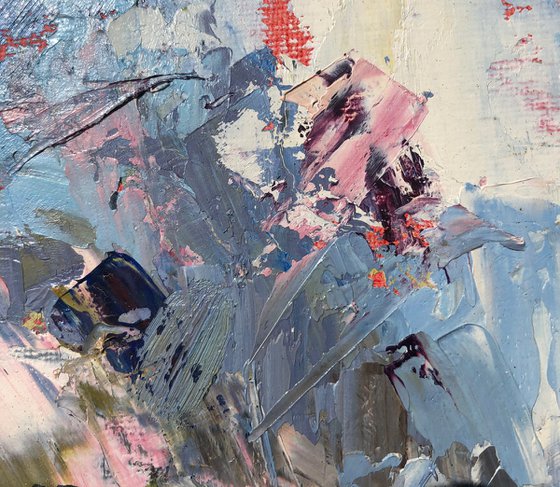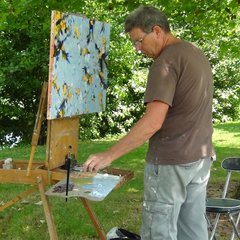- By medium
- By subject
- By budget
- Sales
- Gift cards
- Discover all art
- Artists
- Editors’ picks
- Ideas
Original artwork description:
‘One day at Varengeville, I saw a little car arriving in a cloud of dust. Monet gets out of it, looks at the sun, and consults his watch: ‘I’m half an hour late,’ he says, ‘I’ll come back tomorrow .’
Ambroise Vollard
I have painted this bridge over the river Aude at Longre on a few occasions, mostly to try and capture the different effects of the light on the scene depending upon the season. This one, as you may suspect, was painted on a bright winter’s day. It was painted ‘all prima’ (in one session), and ‘en plein air’ – ie standing in the paddock next to it in the open air, not from a photo in the studio.
This methodology, (provided you can manage it on the day) usually provides a bright and lively piece, and it sure did on this occasion. It’s interesting to record the same scenes under different conditions provided by varying weather and time of day.
Claude Monet did it often, with his ‘Haystacks’ series where he painted the haystacks in different light ie winter, summer etc. He also did that with his ‘Cathedrals’ series, painting Cathedrals in various cities.
Monet would work tirelessly on his series pictures, carrying several canvases around with him, waiting for the light and the moment to reoccur, so he could continue working on individual paintings, but always felt that ‘I’m never finished with my paintings; the further I get, the more I seek the impossible and the more powerless I feel. ‘
Comforting to know that even Claude had his less than good days.
Materials used:
oil
Tags:
#water #france #pinks #greys #pinks andThe bridge at Longre (2020) Oil painting
by Jean David
1 Artist Reviews
£513.86
- Oil painting on Canvas
- One of a kind artwork
- Size: 35 x 27 x 2cm (unframed) / 35 x 27cm (actual image size)
- Signed on the front
- Style: Impressionistic
- Subject: Landscapes, sea and sky
Loading
Original artwork description
‘One day at Varengeville, I saw a little car arriving in a cloud of dust. Monet gets out of it, looks at the sun, and consults his watch: ‘I’m half an hour late,’ he says, ‘I’ll come back tomorrow .’
Ambroise Vollard
I have painted this bridge over the river Aude at Longre on a few occasions, mostly to try and capture the different effects of the light on the scene depending upon the season. This one, as you may suspect, was painted on a bright winter’s day. It was painted ‘all prima’ (in one session), and ‘en plein air’ – ie standing in the paddock next to it in the open air, not from a photo in the studio.
This methodology, (provided you can manage it on the day) usually provides a bright and lively piece, and it sure did on this occasion. It’s interesting to record the same scenes under different conditions provided by varying weather and time of day.
Claude Monet did it often, with his ‘Haystacks’ series where he painted the haystacks in different light ie winter, summer etc. He also did that with his ‘Cathedrals’ series, painting Cathedrals in various cities.
Monet would work tirelessly on his series pictures, carrying several canvases around with him, waiting for the light and the moment to reoccur, so he could continue working on individual paintings, but always felt that ‘I’m never finished with my paintings; the further I get, the more I seek the impossible and the more powerless I feel. ‘
Comforting to know that even Claude had his less than good days.
Materials used:
oil
Tags:
#water #france #pinks #greys #pinks and14 day money back guaranteeLearn more
